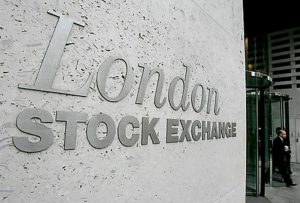
The majority of traders, brokers of other participants, the financial market is interesting in two ways – as a world currency market and as a stock market. As for the former, it does not have a clear structure, while the latter is a more orderly system of relations. The main structuring elements of the stock market are stock exchanges. Currently, the number of stock exchanges operating in the world is approaching two hundred. One of the largest stock exchanges holding leading positions in this list is London Stock Exchange.
The modern London Stock Exchange (the London Stock Exchange, LSE) was formed in 1801, although its first approximation is the Royal Exchange, created by financial agent and advisor Thomas Gresham in 1570. It is worth noting that the creation of the Royal Exchange was financed exclusively by the founder’s personal funds. Originally, the ancestor of the modern London Stock Exchange was one of the largest trading centers in the city. The London Stock Exchange retained its commodity status for more than one hundred years and only in 1695 was it the first time that transactions with government securities and company shares were concluded. However, three years later, brokers working with securities, which initially were not to the liking of the prudent management of the Royal Exchange, access to it was denied. And it was this that led to the emergence of the Stock Exchange in the form in which it now exists. In 1773, brokers joined forces to finance the construction of a stock exchange building. As a result, after about a hundred years, the Royal Exchange was abolished, and the Stock Exchange, having changed its location several times, still exists and is one of the world’s largest stock exchanges.
London Stock Exchange is based on three main structural elements:
- The Main Market. Only companies that meet the requirements of the FSA are allowed to trade on this exchange. At the moment, there are about two thousand of them. It is worth noting that London Stock Exchange is one of the most prestigious stock exchanges. As for the listing requirements, they are comparable in terms of severity only to those on the New York Stock Exchange.
- Active Investments Market (AIM). Designed for young, innovative companies, most of which are not widely known to consumers. The section was established in 1995 and is developing quite dynamically: in 2003 it was registered 702 companies, and in 2005 their number increased almost twice – up to 1300 companies. Listing requirements in this section allow to put up shares of almost any company. At least, the criterion of geographical location and belonging to a certain sector of the economy cannot be the reason for banning participation in the section of alternative investments
- Hi-tech equity market (tech MARK)
It should also be noted that the London Stock Exchange is a joint-stock company, the shares of which are presented at once.
